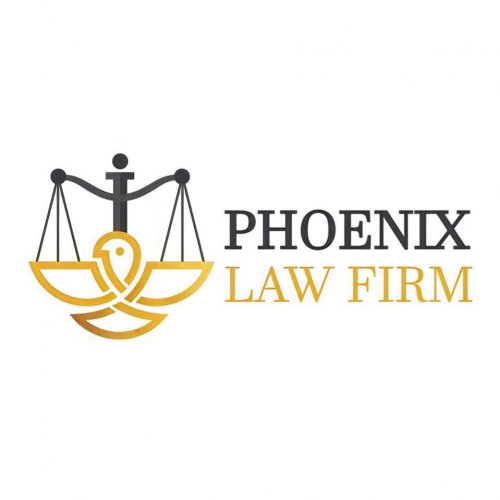Best Bankruptcy Lawyers in Beirut
Share your needs with us, get contacted by law firms.
Free. Takes 2 min.
List of the best lawyers in Beirut, Lebanon
About Bankruptcy Law in Beirut, Lebanon
In Beirut, Lebanon, the Bankruptcy Law is designed to provide a solution for debtors who are unable to pay their debts. It provides a mechanism for insolvent businesses and individuals to eliminate or discharge their debts, restructure their financial affairs, or come up with a repayment plan. Bankruptcy law is complicated, having evolved over years under the Code of Commerce of 1942 and judicial decisions. Understanding this complex area of law demands specialized knowledge and experience.
Why You May Need a Lawyer
It's crucial to get legal advice if you're considering filing for bankruptcy. A competent lawyer can provide crucial advice and insight on whether bankruptcy is a suitable option for you, considering your unique financial situation. Also, bankruptcy involves intricate paperwork and procedures, which can be navigated easily with the help of a lawyer. A legal representative can also advocate for your rights and protect you from potential pitfalls during the proceedings. Filing for bankruptcy without proper legal support might end up worsening your financial inconvenience.
Local Laws Overview
Bankruptcy cases in Lebanon are handled under the provisions of the Code of Commerce. Lebanese law recognises two types of insolvency: Bankruptcy (reserved for traders) and failure (for non-traders). The law imposes obligations on traders who stop paying their commercial debts to declare their bankruptcy to the court, and failure to do so can result in criminal penalties. Furthermore, Lebanese law also includes regulations for corporate bankruptcies, recognising both liquidation and reorganisation proceedings.
Frequently Asked Questions
1. Can I keep my assets if I file for bankruptcy?
It varies - certain assets may be exempt, while others may be sold to repay creditors. A lawyer can guide you through this process.
2. Does filing for bankruptcy erase all my debts?
Not all debts. Some debts, such as fines, alimony, and child support, are not erased during bankruptcy.
3. Can a company continue to do business in Lebanon after filing for bankruptcy?
Yes, a company can potentially continue its business operations after filing for bankruptcy, under the supervision of a court-appointed trustee.
4. How long does it take for bankruptcy proceedings in Lebanon?
The duration of bankruptcy proceedings can vary significantly depending on the complexity of the case, assets involved, and any potential legal challenges.
5. What happens after the bankruptcy process is finished?
Once the bankruptcy process is finalized, the debtor is typically released from the obligation to repay the debts (except the non-dischargeable ones), and they can start to rebuild their financial life.
Additional Resources
Several institutions can provide assistance related to bankruptcy consultation in Beirut, Lebanon. Some of these include the Beirut Bar Association, the Lebanese Ministry of Justice, and independent non-governmental organisations offering legal aid. Various online platforms also provide resources and assistance for individuals dealing with bankruptcy.
Next Steps
If you need legal assistance with bankruptcy in Beirut, the very first thing to do is to consult with a competent lawyer experienced in bankruptcy law. Gather and organize your financial records such as debts, income, assets, and expenses. Any information regarding your financial status will be useful for consultation. A lawyer can then guide you towards the next steps according to your unique financial scenario. Remember, acting promptly can help you prevent complicating your financial issues further.
Lawzana helps you find the best lawyers and law firms in Beirut through a curated and pre-screened list of qualified legal professionals. Our platform offers rankings and detailed profiles of attorneys and law firms, allowing you to compare based on practice areas, including Bankruptcy, experience, and client feedback.
Each profile includes a description of the firm's areas of practice, client reviews, team members and partners, year of establishment, spoken languages, office locations, contact information, social media presence, and any published articles or resources. Most firms on our platform speak English and are experienced in both local and international legal matters.
Get a quote from top-rated law firms in Beirut, Lebanon — quickly, securely, and without unnecessary hassle.
Disclaimer:
The information provided on this page is for general informational purposes only and does not constitute legal advice. While we strive to ensure the accuracy and relevance of the content, legal information may change over time, and interpretations of the law can vary. You should always consult with a qualified legal professional for advice specific to your situation.
We disclaim all liability for actions taken or not taken based on the content of this page. If you believe any information is incorrect or outdated, please contact us, and we will review and update it where appropriate.








